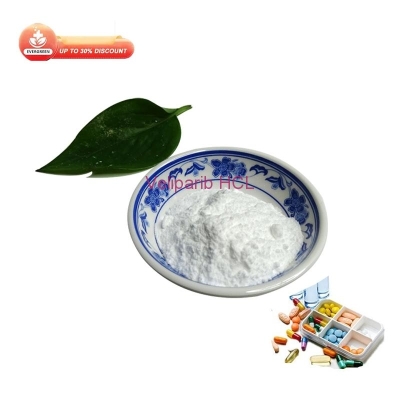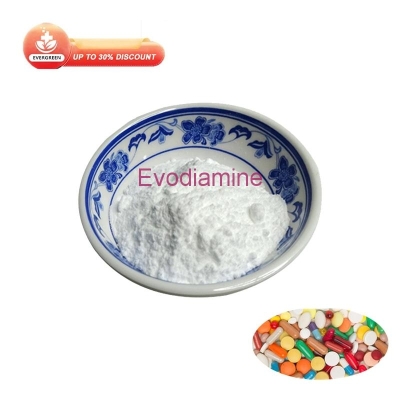-
Categories
-
Pharmaceutical Intermediates
-
Active Pharmaceutical Ingredients
-
Food Additives
- Industrial Coatings
- Agrochemicals
- Dyes and Pigments
- Surfactant
- Flavors and Fragrances
- Chemical Reagents
- Catalyst and Auxiliary
- Natural Products
- Inorganic Chemistry
-
Organic Chemistry
-
Biochemical Engineering
- Analytical Chemistry
- Cosmetic Ingredient
-
Pharmaceutical Intermediates
Promotion
ECHEMI Mall
Wholesale
Weekly Price
Exhibition
News
-
Trade Service
On September 23-25, 2022, the 17th National Hematology Academic Conference of the Chinese Medical Association was grandly opened
at the National Exhibition and Convention Center in Shanghai.
With the theme of "Respect, Inheritance, Collaboration and Innovation", this conference invited well-known experts at home and abroad to talk about the latest progress
in the field of blood diseases.
On this occasion, Professor Wang Jin of Ruijin Hospital affiliated to Shanghai Jiao Tong University School of Medicine was invited to be interviewed to share the current status of diagnosis and treatment of acute lymphoblastic leukemia (ALL) and its prospects
for the future.
Medical Pulse Pass: Could you please briefly talk about the current treatment status of ALL? As a high-risk subtype, Ph+ALL has a poor prognosis for patients, so what is the current status of clinical diagnosis and treatment of such patients?
In the past decade, the progress of ALL treatment has undergone earth-shaking changes, the incidence of ALL in children is much higher than that of adult ALL, and the former complete remission (CR) rate and overall survival (OS) rate are close to 90%, it can be considered that childhood ALL is a curable disease, but there are still challenges
in adult ALL treatment.
Adult ALL can reach more than 80% of CR1 after induction therapy, but about 50% of patients will relapse in about a year, CR2 may be less than 30% by chemotherapy, and 5-year OS may even be less than 20%.
Therefore, the overall prognosis of adult ALL is poor compared with childhood ALL, and there is still a lot of room for
effort.
Ph+ALL is a molecular subtype with the highest proportion of adult ALL (30%) in China, and the incidence increases with age, and the proportion of Ph+ALL patients over 50 years old is close to 50%, which is a clinical need
for key diagnosis and treatment.
The introduction of tyrosine kinase inhibitors (TKIs) in 2000 was a milestone event
in the history of Ph+ALL therapy.
The addition of the first-generation TKI drug imatinib on the basis of chemotherapy can make the CR of Ph+ALL patients reach 80% to 90%.
At present, three generations of TKI drugs can make the CR of Ph+ALL reach 90% or even more than
95%.
Now has entered the era of immunotherapy, in the past two years, Ph+ALL treatment can be described as a higher level, innovative drug research and development and the development of new combination therapy programs, so that Ph+ALL patients have improved
the remission rate and long-term survival rate.
In October 2020, the New England Journal of Medicine also published a Phase 2 clinical study of dasatinib plus Bellintoxumab in the treatment of adult ALL, which first proposed a "chemotherapy-free" treatment regimen in the treatment of patients with Ph+ALL primary treatment, although the study included only more than 60 patients, but the results were better
.
At the 27th European Annual Conference on Hematology (EHA) in June, research data updates showed that OS rates reached 78%
at median follow-up of 40 months.
In the future, with the blessing of double targeting, triple targeting and even multiple targeted therapy, the treatment of Ph+ALL patients is very likely to achieve a true sense of "no chemotherapy", and even become a representative subtype
of ALL therapy.
CAR-T cell therapy has always been the focus of attention in the field of blood malignancies, CAR-T cell therapy was first successfully applied to ALL patients, as of May 2022, the first patient who received CAR-T cell therapy and obtained long-term survival has survived for 10 years, while ALL has not been seen in the indications of CAR-T cell therapy approved in China
.
Could you please briefly talk about the current status of CAR-T cell therapy in ALL and its future prospects?
CAR-T therapy has promising
prospects as one of the current cell-based gene therapies.
The focus is on the breakthrough in concept, CAR-T therapy is a "living" drug, through the patient's immune cells to be modified, the introduction of receptor genes that can encode and recognize tumor-specific antigens and help T cells activate the various gene fragments, the formation of CAR-T cells, and then in vitro amplification culture, back into the patient's body, with the ability to expand, can survive
in the patient's body for a long time 。 Tisagenlecleucel treats relapsed/refractory ALL (R/R ALL) in children and adolescents, and the overall response rate is about 80%, and this year the EHA updated the follow-up data for the past five years, and the overall OS is about
55%.
In 2021, The Lancet published a ZUMA-3 study of 71 patients with adult R/R B-ALL who met the criteria, and 55 (77%) successfully infused CAR-T cells
.
For infusion patients, 71% of the median follow-up of 26.
8 months achieved CR/CR with incomplete recovery (CRi) of CR so CAR-T therapy not only has a good response rate and has a long-lasting effect, of course, we still need to follow up on ZUMA-3 results
.
The likelihood of recurrence within the first year of CAR-T treatment is greater, and the patient's OS curve does not decrease significantly after one year, so long-term follow-up data on ZUMA-3 in adult ALL are worth looking forward to
.
Everything is a double-edged sword, and there are shortcomings in CAR-T therapy:
First, only 70% of patients can receive CAR-T infusion, and the accessibility is low;
Second, CAR-T cells have toxic side effects, including cytokine release syndrome (CRS) and immune effector cell-associated neurotoxicity syndrome (ICANS
).
If these two aspects can be overcome to make CAR-T therapy more optimized, it is believed that CAR-T will surpass other drugs in the future and become a better choice for
R/R ALL or MRD-positive ALL patients.
In addition to CAR-T cell therapy, what other new drug advances in the ALL field are worth paying attention to in recent years?
With the advancement of basic research, hematologists have a deeper understanding of the pathogenesis and drug resistance mechanism of ALL, and there have been many advances in treatment, mainly including two parts, as follows
.
First, target the inside
of tumor cells.
Mainly by influencing the signaling pathway of targeted mutant genes, there is now a fourth generation of TKI, mainly for Ph+ALL, which can overcome drug resistance through different mechanisms;
Second, target cell surface antigens
.
In addition to CAR-T, there are two representative drugs, one is a bispecific antibody, China now also has this accessible drug, that is, Belintoxumab, mainly for CD3 and CD19 two targets, can simultaneously combine the CD19 antigen on the surface of B cells and CD3 antigen on the surface of T cells, to achieve the effect
of specific targeted killing of tumor cells 。 The second is an antibody-conjugated drug (ADC), ogaituzumab is composed of a monoclonal antibody targeting CD22 and a cytotoxic drug cazithromycin, and the mechanism of action is to target tumor cells and enter tumor cells, and cazithromycin plays a role, resulting in tumor cell death
.
At present, whether it is adult R/R ALL or MRD-positive ALL patients, the efficacy of these two drugs has been verified by different clinical trial data
.
Professor Wang Jin
Department of Hematology, Ruijin Hospital, Shanghai Jiao Tong University School of Medicine
Ph.
D.
, Chief Physician, Doctoral SupervisorResponsible for the subspecialty of acute lymphoblastic leukemia
Member of the Standing Committee of the Targeted Therapy Committee of the Chinese Association of Women Physicians
He is a member of the Hematology Branch of the Chinese Geriatrics Association
He is a member of the Blood Professional Committee of the Chinese Association of Women Physicians
He is a member of the Blood Transfusion Society of the Shanghai Branch of the Chinese Medical Association
Member of the Standing Committee of the Hematology Medical Transformation Professional Committee of Shanghai Pharmaceutical Industry Association
Expert in the review of doctoral dissertations at the Degree Center of the Ministry of Education
National international scientific and technological cooperation special review expert
As the first person in charge, he undertook 8 projects, including major national science and technology cooperation projects, national natural science foundation projects and key projects of Shanghai Municipal Science and Technology Commission, and was selected as a "double hundred people" research physician
in the Shanghai Municipal Education Commission's Summit Plateau Program - Jiaoyi Medicine.
In recent years, he has published more than 30 academic works as the first or corresponding author in internationally renowned journals
Poke "Read the original article" and go to the micro-official website to get more meeting information







